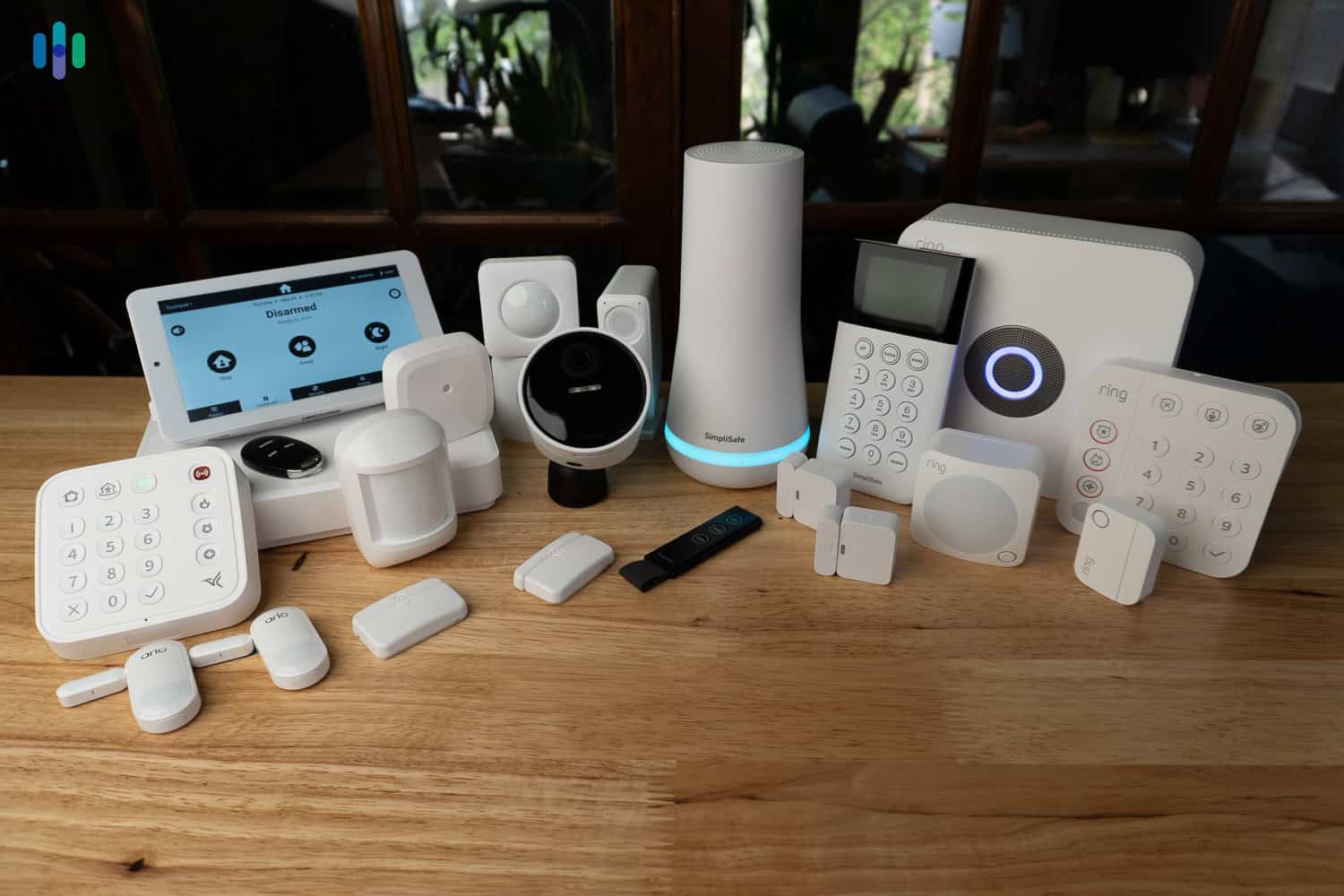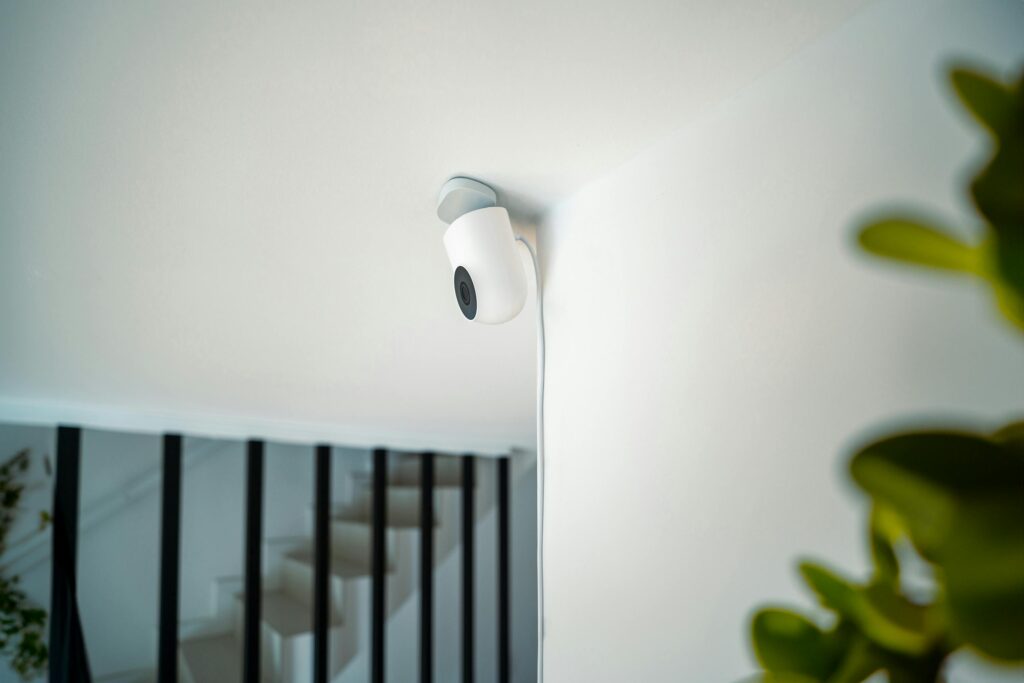
Image Source: Security.org
In today’s world, ensuring the safety and security of one’s home is a top priority for many individuals and families. With the rapid advancements in technology, home security systems have become more sophisticated, offering a wide range of features designed to protect against intrusions, theft, and other threats. Understanding what constitutes a robust home security system is crucial in making an informed decision that best suits your needs.
Home security systems typically consist of a series of interconnected devices that work together to monitor and protect a property. These systems can vary significantly depending on the level of security desired, the size of the home, and specific user requirements. Whether you’re a homeowner or a renter, investing in a reliable security setup can provide unparalleled peace of mind.
Moreover, the availability of numerous options in the market can be overwhelming for someone new to home security. This guide aims to demystify the various components and features of home security systems, helping you to make a choice that aligns with your safety goals. From understanding different types to comparing top providers, this comprehensive guide covers all you need to know.
Understanding Different Types of Home Security Systems
Home security systems come in various forms, each with its unique set of advantages and potential limitations. The primary types include monitored systems, unmonitored systems, wireless systems, and wired systems. Monitored systems are often linked to a central monitoring station that provides round-the-clock surveillance, ensuring that emergency services are notified when an alarm is triggered.
Unmonitored systems, on the other hand, rely on loud alarms and notifications to alert homeowners and neighbors of potential intrusions. These systems may not offer the same level of immediate response as monitored systems but can still be an effective deterrent against would-be intruders. Wireless systems have gained popularity due to their ease of installation and flexibility, allowing homeowners to move components as needed without complicated wiring.
Wired systems are typically more reliable in terms of connectivity but may require professional installation and can be more challenging to modify. Each type of home security system has its merits, and choosing the right one will depend on your specific security needs, budget, and personal preferences.
Key Features to Look for in the Best Home Security Systems
When selecting the best home security system, it’s essential to consider a range of features that enhance security and user convenience. Key features to look for include:
- 24/7 Monitoring: Ensures constant surveillance and quick response in case of emergencies.
- Smart Home Integration: Allows the system to connect with other smart devices for seamless automation.
- Mobile Access: Provides remote access and control over your security system via smartphones or tablets.
Other notable features include environmental sensors that detect smoke, fire, or water leaks, as well as advanced motion detectors and video surveillance capabilities. The presence of home security cameras is particularly important, as they not only act as a deterrent but also provide valuable evidence in case of incidents.
Customizability is another crucial factor. The ability to tailor the system according to specific needs ensures that you are not paying for unnecessary features while still achieving comprehensive coverage. Lastly, user-friendly interfaces and straightforward installation processes can make a significant difference in user satisfaction.
Comparing the Best Home Security Systems on the Market
The market for home security systems is vast, with numerous companies offering various solutions to meet different needs. To make an informed decision, it’s helpful to compare the top-rated systems based on factors such as cost, features, ease of use, and customer service.
A comparison table can be a useful tool in this context:
| Provider | Monitoring Type | Key Features | Price Range |
| Brinks Home Security | Monitored | 24/7 Monitoring, Smart Home Integration | $29-$39/month |
| ADT | Monitored | Video Surveillance, Mobile Access | $28-$60/month |
| SimpliSafe | Unmonitored | DIY Installation, No Contract | $15-$25/month |
| Ring | Unmonitored | Wireless Cameras, Smart Alerts | $3-$10/month |
Each provider offers unique benefits, and the choice will depend on individual preferences and requirements. Brinks Home Security, for instance, is renowned for its comprehensive monitoring services and smart home integration, making it a popular choice among tech-savvy homeowners.
In-depth Review: Brinks Home Security
Brinks Home Security is a well-established name in the security industry, known for providing robust and reliable solutions. Their systems are designed with user convenience in mind, offering features such as 24/7 professional monitoring, smart home compatibility, and easy-to-use mobile apps.
One of the standout aspects of Brinks Home Security is its commitment to integrating the latest technology into its offerings. This includes compatibility with smart home devices like Amazon Alexa and Google Assistant, enabling homeowners to control their security systems with voice commands. Additionally, their mobile app allows for remote access, giving users the ability to monitor and manage their security from anywhere.
Customer service is another area where Brinks excels. They offer comprehensive support, ensuring that any issues or concerns are addressed promptly. With competitive pricing and flexible contract options, Brinks Home Security provides an appealing option for those seeking a high-quality, reliable security solution.
The Importance of Home Security Cameras
Home security cameras are a critical component of any comprehensive security system. They serve as both a deterrent against criminal activity and a tool for gathering evidence in the event of a security breach. The presence of cameras can dissuade potential intruders, reducing the likelihood of break-ins and theft.
Security cameras come in various forms, including indoor, outdoor, wired, and wireless options. Each type has its own set of advantages, and choosing the right camera will depend on your specific needs. For instance, outdoor cameras are typically weather-resistant and equipped with night vision capabilities, while indoor cameras may offer advanced features like two-way audio and motion detection.
The ability to access camera feeds remotely is another significant benefit. Most modern systems allow users to view live footage or recorded clips through a mobile app, providing real-time updates on the security status of their home. This accessibility ensures that homeowners can stay informed and take swift action if necessary.
DIY vs. Professional Home Security Systems
When it comes to installing home security systems, homeowners have the option to choose between DIY and professional installations. Each approach has its pros and cons, and the decision will largely depend on personal preferences, budget, and technical expertise.
DIY security systems are appealing due to their cost-effectiveness and ease of installation. These systems usually come with user-friendly instructions, allowing homeowners to set up the components without professional assistance. Additionally, DIY systems often do not require long-term contracts, providing flexibility to modify or upgrade as needed.
Professional installations, while typically more expensive, offer the advantage of expert setup and configuration. This can be particularly beneficial for complex systems that require precise placement and calibration of devices. Furthermore, professional installations often come with warranties and customer support, ensuring peace of mind for users who may not be comfortable handling technical issues.
Installation Tips for Home Security Systems
Installing a home security system can seem daunting, but with the right approach, it can be a straightforward process. Here are some tips to ensure a successful installation:
- Plan the Layout: Before starting, map out where each component will be placed. Consider entry points, high-traffic areas, and locations that require the most coverage.
- Follow Manufacturer Instructions: Adhering to the provided guidelines ensures that each device functions correctly and safely.
- Test the System: Once installed, thoroughly test all components to confirm that they are working as intended. This includes checking sensors, cameras, and alarm systems.
For those opting for a DIY approach, it’s crucial to have the necessary tools on hand and to allocate sufficient time for the installation process. Professional installations, while generally more hands-off, still benefit from homeowner input regarding specific needs and preferences.
How to Maintain Your Home Security System
Maintaining a home security system is vital to ensuring its long-term effectiveness. Regular maintenance can prevent malfunctions and extend the lifespan of your equipment. Here are several maintenance tips to keep in mind:
- Routine Checks: Periodically test all components to ensure they are functioning correctly. This includes checking batteries, sensors, and connections.
- Software Updates: Keep the system’s software up-to-date to benefit from the latest features and security enhancements.
- Clean Equipment: Dust and debris can interfere with the performance of cameras and sensors. Regular cleaning can help maintain optimal functionality.
By following these maintenance practices, homeowners can ensure that their security systems continue to provide reliable protection. Additionally, many security providers offer maintenance plans or services, which can be a valuable resource for those seeking professional assistance.
Additional Home Security Measures for Enhanced Safety
In addition to traditional security systems, there are several supplementary measures homeowners can take to enhance their overall safety. These measures can be implemented alongside existing systems for a more comprehensive security strategy.
- Outdoor Lighting: Installing motion-activated lights around the perimeter of your home can deter unauthorized activity.
- Reinforced Doors and Windows: Strengthening entry points with additional locks or security film can make it more difficult for intruders to gain access.
- Neighborhood Watch Programs: Engaging with the community through neighborhood watch initiatives can increase vigilance and foster a sense of collective security.
Implementing these additional measures can significantly enhance the overall security of your property, providing an extra layer of protection against potential threats.
Top-Rated Home Security System Providers
When selecting a home security provider, it’s essential to consider those that have consistently demonstrated reliability and customer satisfaction. Some of the top-rated providers include:
- Brinks Home Security: Known for its robust monitoring services and smart home integration.
- ADT: Offers extensive experience and a wide range of security products.
- SimpliSafe: Popular for its affordable DIY systems and no-contract options.
- Ring: Offers innovative wireless solutions with a focus on video surveillance.
Each of these providers has earned a reputation for excellence in the home security industry, making them worthy of consideration for anyone seeking a top-tier security solution.
Conclusion: Choosing the Best Home Security System for Your Needs

Selecting the best home security system involves careful consideration of your specific needs, budget, and preferences. By understanding the different types of systems available, key features to look for, and top providers in the market, you can make an informed decision that ensures the safety and security of your home.
Remember, the best system for you is one that offers the right balance of features, reliability, and customer support, tailored to your unique requirements. Investing in a high-quality home security system not only provides peace of mind but also protects your loved ones and valuable assets.
Frequently Asked Questions
1. What are the most important features to consider when choosing a home security system?
Key features include 24/7 monitoring, smart home integration, mobile access, and video surveillance capabilities. Customizability and user-friendly interfaces are also important.
2. How do monitored systems differ from unmonitored systems?
Monitored systems are connected to a central monitoring station that provides round-the-clock surveillance, while unmonitored systems rely on alarms and notifications to alert homeowners and neighbors.
3. Can I install a home security system myself?
Yes, many systems are designed for DIY installation, offering cost-effectiveness and flexibility. However, professional installations are available for those who prefer expert setup.
4. How often should I maintain my home security system?
Regular maintenance is crucial to ensure long-term effectiveness. This includes routine checks, software updates, and cleaning of equipment.
5. Are home security cameras necessary?
While not mandatory, home security cameras are highly recommended as they deter criminal activity and provide valuable evidence in case of incidents.